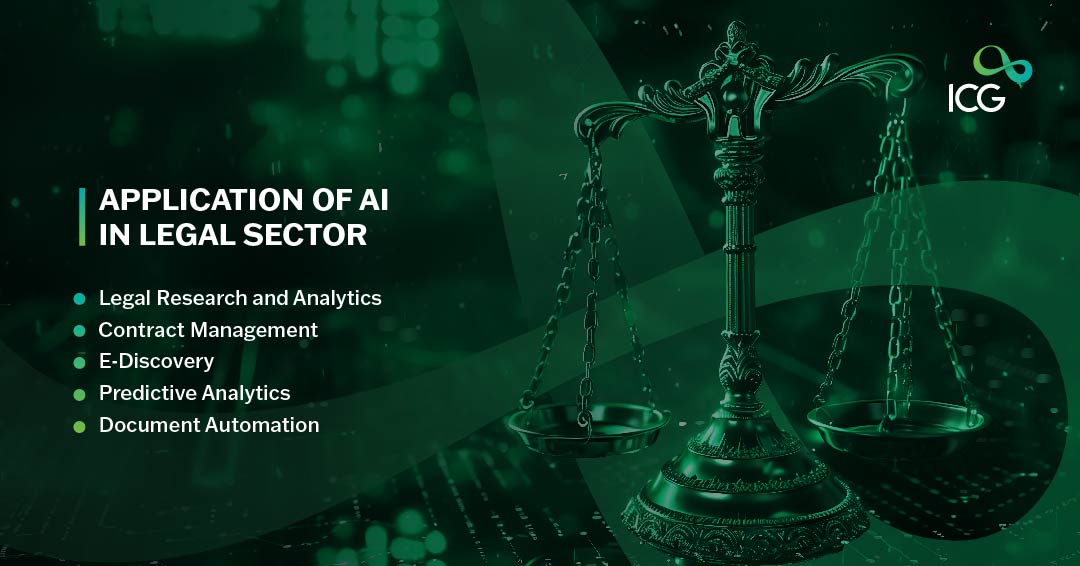As we approach the brink of technological revolution, AI is becoming an integral part of many industries. The legal sector isn’t untouched by it. As legal professionals eagerly seek ways to meet the demands of dynamic clientele, AI offers innovative solutions that enhance efficiency, accuracy, and accessibility.
This article explores how AI has grown its influence over the legal sector and what future it holds in the legal paradigm.
The Rise of AI in Legal Practices
The legal industry is increasingly leaning towards the adoption of Artificial Intelligence as professionals have started recognizing its potential to enhance efficiency and productivity. According to a survey conducted by Gartner, 30% of law firms have reported an increase in productivity since AI is infused into their practices. This shift is largely attributed to AI’s ability to automate routine tasks, allowing legal professionals to focus on more complex matters.
Another survey identifies 65% of legal professionals who believe that AI can speed up their tasks, highlighting how much it is growing throughout the sector. AI tools are transforming traditional workflows by automating routine tasks such as document review and legal research, allowing lawyers to focus on more complex issues.
As the demand for efficiency grows, legal firms are eager to leverage AI to stay competitive, improve client service, and reduce operational costs. This inclination towards AI adoption reflects a broader shift in the legal domain, where technology is seen not just as a tool but as an essential partner in legal practice.
Current Applications of AI in the Legal Sector: How Legal Firms Are Making the Most of AI Technologies?
Legal businesses are rapidly involving artificial intelligence in their operations, and here are some common applications in legal practices:

Legal Research and Analytics
AI has transformed legal research through advanced natural language processing (NLP) algorithms, enabling lawyers to easily comprehend complex queries and access relevant case laws and statutes. Tools like ROSS intelligence utilize natural language processing to provide precise answers to legal queries, saving countless hours of manual research.
Contract Management
Artificial Intelligence is also helping to streamline contract management through automated review and analysis. Platforms like ContractPodAi allow legal teams to generate contracts efficiently and identify potential risks, ensuring compliance and minimizing errors.
E-Discovery
In litigation, e-discovery is a critical process that involves identifying and reviewing relevant documents. AI tools can significantly process vast amounts of documents quickly, identifying relevant information for litigation. This capability significantly reduces the time and costs associated with traditional document review processes.
Predictive Analytics
AI tools analyze historical data to forecast case outcomes and settlement values, giving lawyers an extra edge while making tough calls and developing stronger case strategies. This predictive capability is becoming increasingly valuable in strategic legal planning.
Document Automation
AI-driven document automation tools allow lawyers to draft legal documents quickly and accurately. By inputting specific data, these tools generate customized documents that meet legal requirements, reducing the risk of human error.
Benefits of Artificial Intelligence in the Legal Sector
Now, let’s move on to the advantages that the legal sector can enjoy by incorporating artificial intelligence into its operations.
Increased Efficiency and Productivity
AI tools automate routine tasks such as document review and legal research, allowing lawyers to focus on higher-value work. Additionally, 60% of legal professionals are already leveraging AI technology in their work, highlighting its widespread acceptance in the industry.
Cost Savings
The implementation of AI technologies can lead to sustainable budget allocation. It helps in reducing operational costs by approximately 50%, enabling law firms to provide more affordable services to clients. This cost-efficiency is critical in a competitive market where clients seek value.
Enhanced Accuracy and Consistency
AI systems excel at processing large volumes of data with a level of accuracy and consistency that is challenging for humans to match. This minimizes the risk of human error in confidential and critical legal processes, ensuring more reliable outcomes.
Predictive Analytics
AI’s ability to analyze historical data enables predictive analytics, helping to forecast potential case outcomes and estimate settlement values. This not only aids in strategic planning but also enhances decision-making capabilities for legal professionals.
Improved Client Service
By streamlining processes and improving efficiency, artificial intelligence in law firms empowers lawyers to respond more quickly to client needs, enhancing overall client satisfaction. The ability to deliver timely and accurate legal services is increasingly becoming a competitive advantage.
The ICG Approach
At ICG, we offer a customized approach that empowers your teams with the latest insights and technology expertise to navigate the demands of today’s digital age. As Saudi Arabia embarks on its digital transformation journey, ICG plays a pivotal role in shaping the Kingdom’s tech landscape by providing cutting-edge solutions, strategic consultancy, and fostering innovation. Our comprehensive guidance, from fundamental concepts to practical implementation, helps organizations mitigate risks, stay ahead of the competition, and unlock their full potential in the accelerating digital environment.
Ready to talk?
Request your free Consultation to learn more about ICG’s capabilities and enablement to embark on a transformative expedition toward the summit of success.








